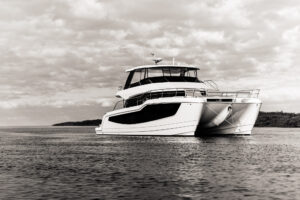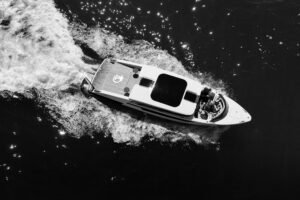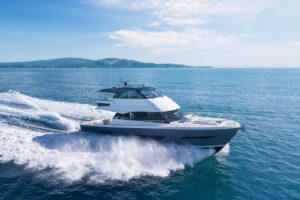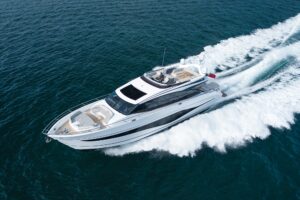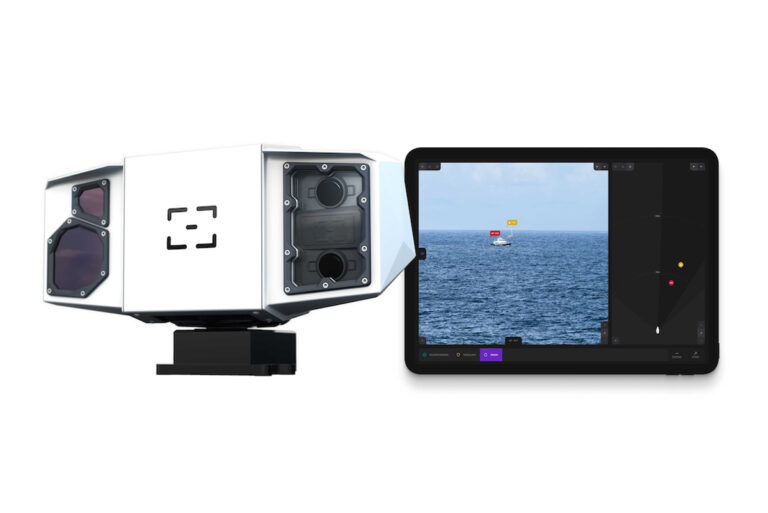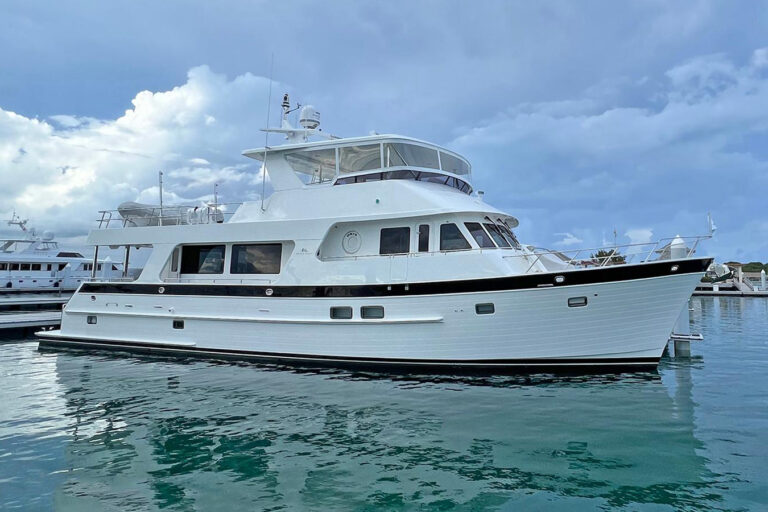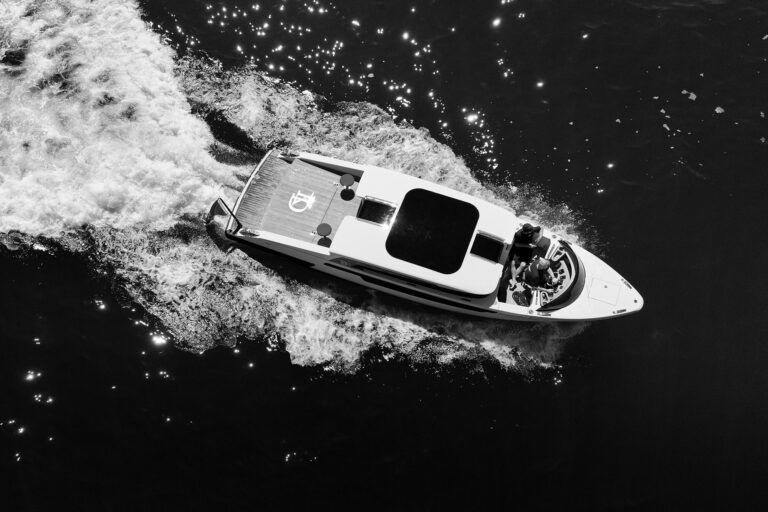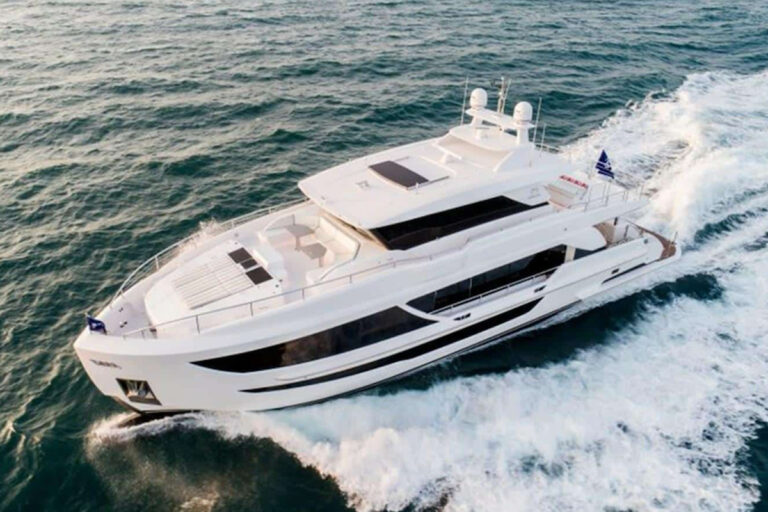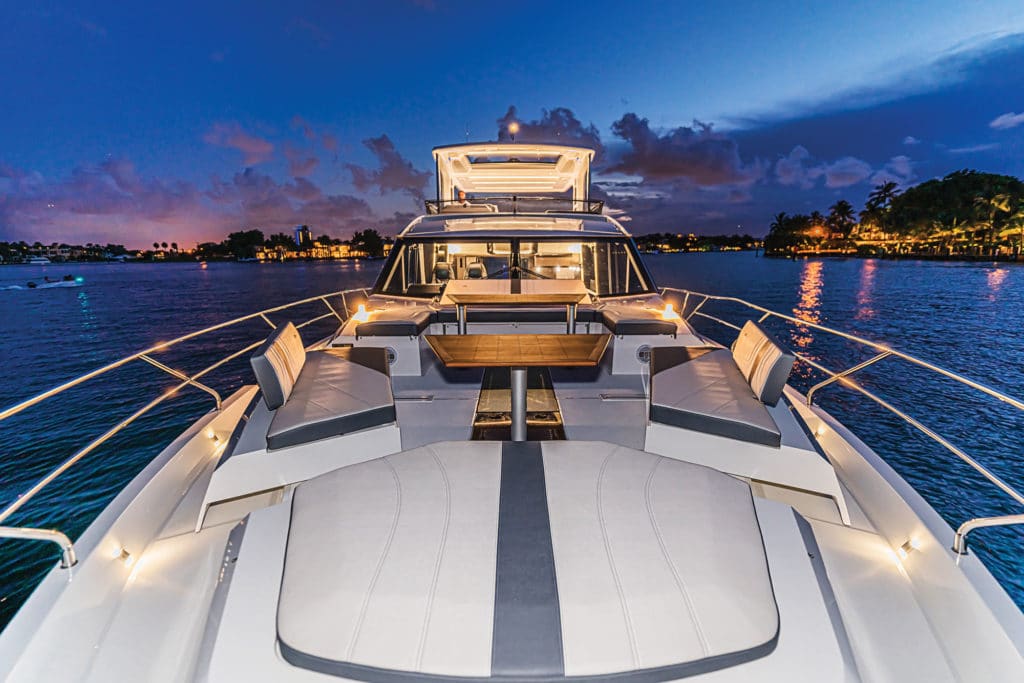
There are two ways to absorb what Poland’s Galeon Yachts has achieved with the 680 Fly: one is to look at a photograph and the other is to stand in the salon.
When I first looked at the image of the 680 Fly, taken at dusk with all of the yacht’s lights on, I was startled. It seemed as though the yacht glowed, with light pouring from multiple windows on all decks.
Later, standing in the salon, I was surrounded by windows that drop down electrically, just as in a car. Want to feel the breeze and smell the sea air? Push a button. As Bob Burke, brand manager for Galeon importer MarineMax, says, “It feels like a giant dayboat.”
That sense of openness is a noteworthy achievement aboard a 68-foot vessel. The 680 Fly is indeed Galeon’s largest Fly model. The only bigger boats that Galeon builds are the 700 Skydeck and 780 Crystal. The 680 Fly is a fourth-generation design for the builder, which has learned to maximize not only the feeling of space but also creature comforts on board.
One of the best examples of Galeon opening up the interior is next to the helm seat: a door to the side deck floats in a one-piece, sole-to-ceiling glass window. The whole interior concept takes cues from waves, with rounded design elements in the fiberglass and woodwork.
The salon’s dining table to port stretches 7 feet, 1 inch, creating family-size eating space. A couch on the opposite side adds to the comfort quotient.
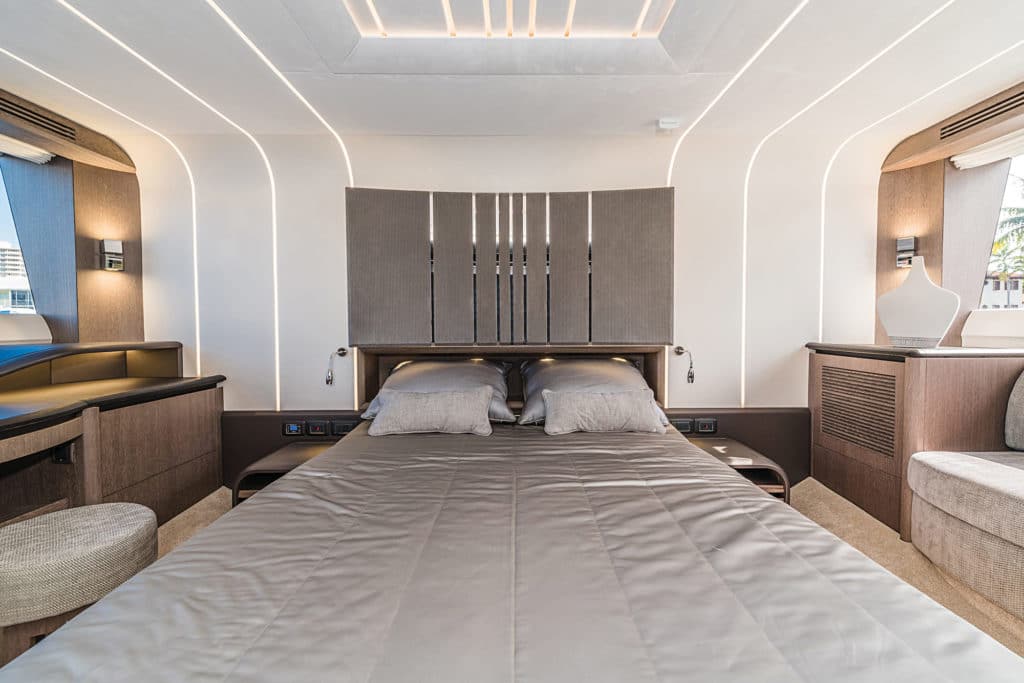
Aft, the U-shaped galley keeps the chef out of any traffic flow. An island counter is sized for a buffet. Don’t expect the chef to get anything done quickly, though; the window over the counter is mightily distracting. Opposite the galley is a choice of arrangements, with a pair of seats and a table for snacks tied in popularity with a pair of bar stools and a countertop.
Forward, for the skipper and a companion, are high-backed pedestal seats with footrests. They’re abaft a dashboard with twin Raymarine multifunction displays and Boening monitors for the engines. Galeon’s Integrated Management Information System reads on the MFDs, and the Empire digital-switching system handles a multitude of functions. The throttle and shifters are on a pedestal, as are the bow- and stern-thruster joysticks. Overhead, a sliding sunroof adjusts to the skipper’s vitamin-D requirements.
The full-beam master stateroom is accessed via private stairs from the salon. There’s a king berth on centerline. Hanging lockers are on each side, while a settee is to starboard and a desk with tidy partitions is to port. The head is aft in a compartment distinct from the shower and vanity.
This stateroom is quiet. While the 680 Fly ran at 24 knots, my sound meter barely registered 70 dB(A), which is about the level of normal conversation.
Stairs and a companionway forward of the salon lead to the guest accommodations, including the forepeak VIP. On most boats, this is the space where bed size is constricted to match the hull sides, but guests on the 680 Fly have a king-berth width (80 inches). The en suite head allots 29-by-34 inches for the shower, with a glass door.
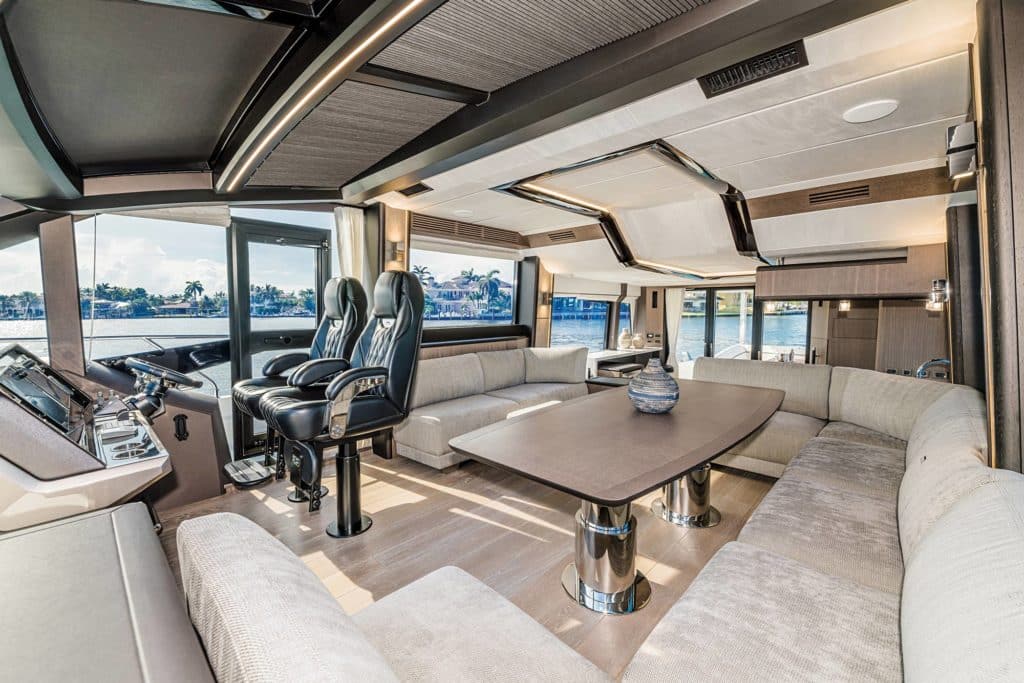
Just abaft the VIP are a pair of guest staterooms, each with twin berths that convert to doubles. These staterooms share a head that also serves as the yacht’s day-head.
Back in the cockpit and just steps from the galley, a settee is wrapped around a teak table in the shade of the flybridge overhang. There’s a pull-down shade and wind block abaft the settee.
Teak steps lead to the flybridge, whose beam extends over the side decks aft, allowing room for a C-shaped dinette that seats 15. Just forward is a U-shaped bar with a fridge, ice maker, sink, grill and bottle stowage.
The flybridge helm virtually duplicates the lower helm, adding a settee to port and a sun pad stretching to the venturi windscreen. The hardtop has an opening sunroof. To keep the 680 Fly’s center of gravity low, the entire superstructure including the hardtop is made of carbon fiber, removing thousands of pounds of weight over fiberglass layups.
The foredeck is also designed with guest relaxation in mind. Here, the sun pad has a pair of tables that pop up electrically, turning the area into twin dining tables surrounded by four couches.
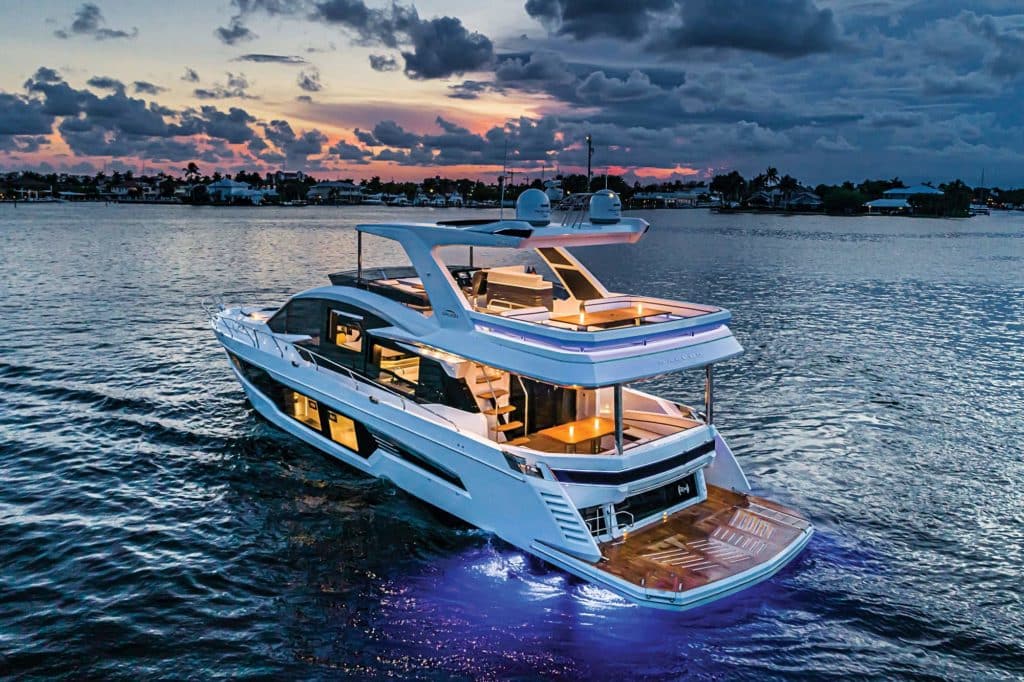
MarineMax, which imports the 680 Fly, upgrades the standard 1,000 MAN diesels to 1,200 hp versions. We hit 32 knots with a 125 gph fuel burn, resulting in a 236-nautical-mile range. At a 28-knot cruise, fuel burn was 110.8 gph, providing a 247-nautical-mile range. At a leisurely 20-knot cruise speed, fuel burn is 68 gph and range climbs to 271 nautical miles. The Tony Castro-designed hull is slippery, coming up fast and flat onto plane without needing the Humphree Interceptor trim tabs to push the bow down. Handling is light and nimble—and assured.
With a multitasking layout, accommodations for a family and then some, admirable performance, and clever flourishes (such as transforming side decks), the Galeon 680 Fly is a new style of cruising yacht for a new generation of cruisers.
Take the next step: galeonyachts.us

